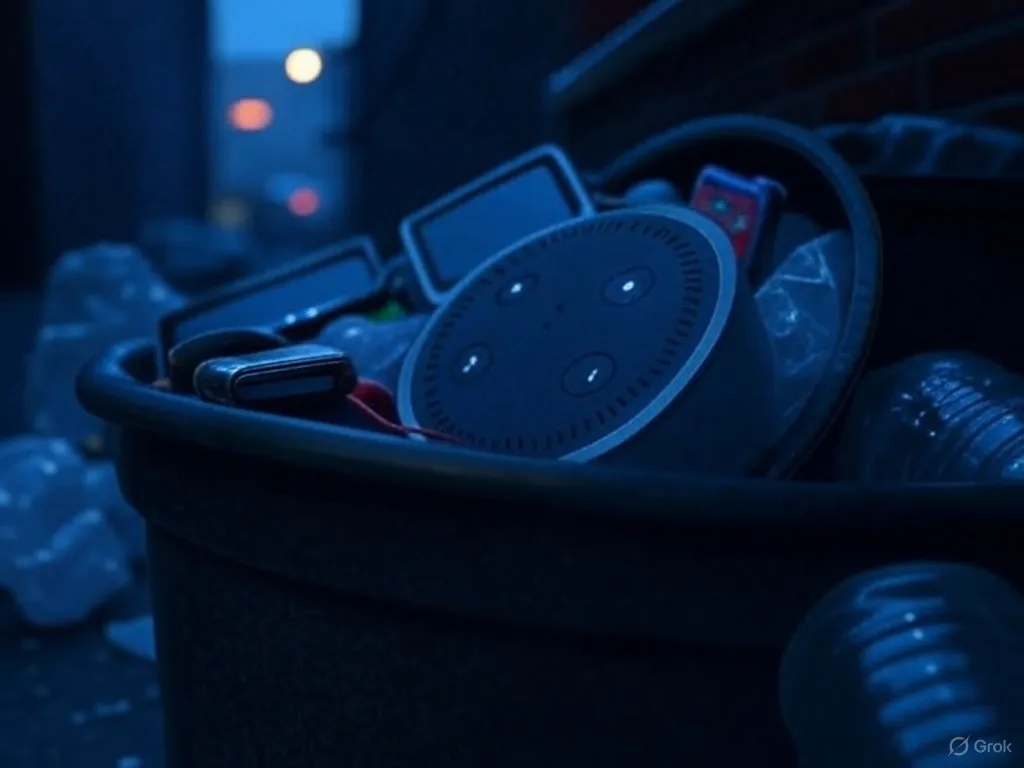The Hidden Cost of Convenience: Are Smart Technologies a Faustian Bargain?

Smart technologies have seamlessly woven themselves into the fabric of our daily lives, promising unparalleled convenience and often, alluring affordability. From refrigerators that order groceries to virtual assistants that manage our schedules, the allure is undeniable. But what if this seemingly utopian future comes at a steep price? What if we're engaging in a modern-day Faustian bargain, trading our fundamental personal privacy for these short-term gains?
The reality is stark: your smart TV isn't just a screen; it's a sophisticated data-gathering device, meticulously recording your viewing habits and preferences. Your AI assistant isn't merely a helpful voice; it's constantly listening, capturing snippets of your conversations and interactions. This isn't a conspiracy theory; it's the core business model for many manufacturers. They collect this intimate behavioral data to construct detailed marketing profiles, which are then used to target you with ads, influence your purchasing decisions, or, more alarmingly, sold to third parties. These third parties can range from data brokers to, potentially, government entities or even nation-states with opaque agendas.
The Unseen Digital Footprint: When Your Life Becomes a Commodity
The sheer volume and intimacy of data being collected are staggering. Our personal and professional lives are increasingly digitized, leaving an ever-expanding digital footprint. Yet, much of this extensive data collection occurs without our explicit knowledge, clear consent, or any meaningful control. This lack of transparency and agency creates a dangerous imbalance of power. We're often unaware of who has access to our most private moments or how that information is being leveraged. Your habits, your preferences, your conversations – they all become valuable commodities in the vast digital marketplace.
This isn't merely about targeted advertising; it's about the potential for manipulation, discrimination, and even the erosion of individual autonomy. Imagine a future where your health insurance premiums are determined by your smart speaker's assessment of your lifestyle, or where job opportunities are limited based on data scraped from your smart home devices. The implications are far-reaching and deeply concerning.
Reclaiming Control: Demanding Transparency and Exploring Alternatives
The good news is that we, as consumers, are not powerless. We stand at a critical juncture, facing a clear choice:
Demand Transparency and Accountability: It's time to collectively demand transparency from manufacturers regarding their data collection practices. We need clear, easily understandable policies, not convoluted legal jargon buried in lengthy terms and conditions. We must push for greater control over how our information is collected, stored, and used. This includes granular privacy settings that are easily accessible and comprehensive, allowing us to opt out of data collection or specific uses of our data.
Embrace Privacy-Preserving Alternatives: The market is slowly responding to growing privacy concerns. Explore privacy-preserving alternatives, such as Home Assistant, that prioritize your autonomy and data security. This might mean opting for open-source smart devices, using browsers and search engines that don't track your activity, or investing in services that have a proven commitment to user privacy. Support companies that build privacy into their products by design, not as an afterthought.
Let's not allow the allure of convenience to overshadow the paramount importance of our fundamental rights. By prioritizing privacy and demanding greater control over our digital lives, we can harness the benefits of smart technology without sacrificing our autonomy and allowing our lives to become mere commodities.
Remember, we may not have anything to hide, but everything to protect.
